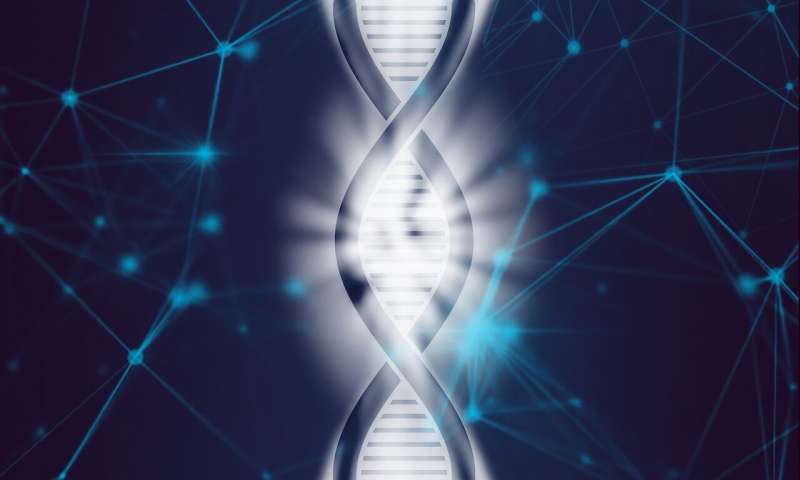Turning an old enemy into a helpful friend

Half our genome is basically foreign, derived from viruses. Obviously, the invasion of such foreign elements can deregulate critical biological processes, and lead to disease. This is why animals, including humans have evolved a large family of proteins called the KRAB domain-containing zinc finger proteins (KZFPs). But despite their importance, KZFPs are still largely uncharacterized.
The principal role of KZFPs is to inhibit the activity of foreign elements that invade the genome. But over time, some foreign elements naturally lose their activity, rendering the KZFP that kept them under control jobless.
Now, a research team from Bart Deplancke's lab at EPFL has found that this is what likely happened to a KZFP named Zfp30. The research team, led by Wanze Chen and Petra Schwalie found that Zfp30 emerged about 100 million years ago to repress a so-called L1 retrotransposon that made its home close to a crucial gene, Pparg.
Pparg is known as the master regulator of fat-cell formation – a process known as "adipogenesis." The researchers found that, over time, the L1 transposon lost its activity, meaning that Zfp30 no longer needed to repress it. Now jobless, Zfp30 went looking for a new career and, surprisingly, found a helpful friend in its old enemy: it started using part of the L1 retrotransposon sequence to enhance the expression of Pparg, thus re-inventing itself from a repressive into an activating protein. Indeed, if cells lose Zfp30, then the expression of Pparg and, consequently, the formation of fat cells are significantly impaired.
"What is especially surprising is that Zfp30 still uses exactly the same co-regulator to now activate rather than suppress gene expression," says Deplancke. "There are therefore definitely important mechanistic subtleties that we have yet to better understand." Nevertheless, these findings contribute to a new understanding of both adipogenic and KZFP-mediated gene regulation.
More information: Wanze Chen et al. ZFP30 promotes adipogenesis through the KAP1-mediated activation of a retrotransposon-derived Pparg2 enhancer, Nature Communications (2019). DOI: 10.1038/s41467-019-09803-9
Journal information: Nature Communications
Provided by Ecole Polytechnique Federale de Lausanne




















